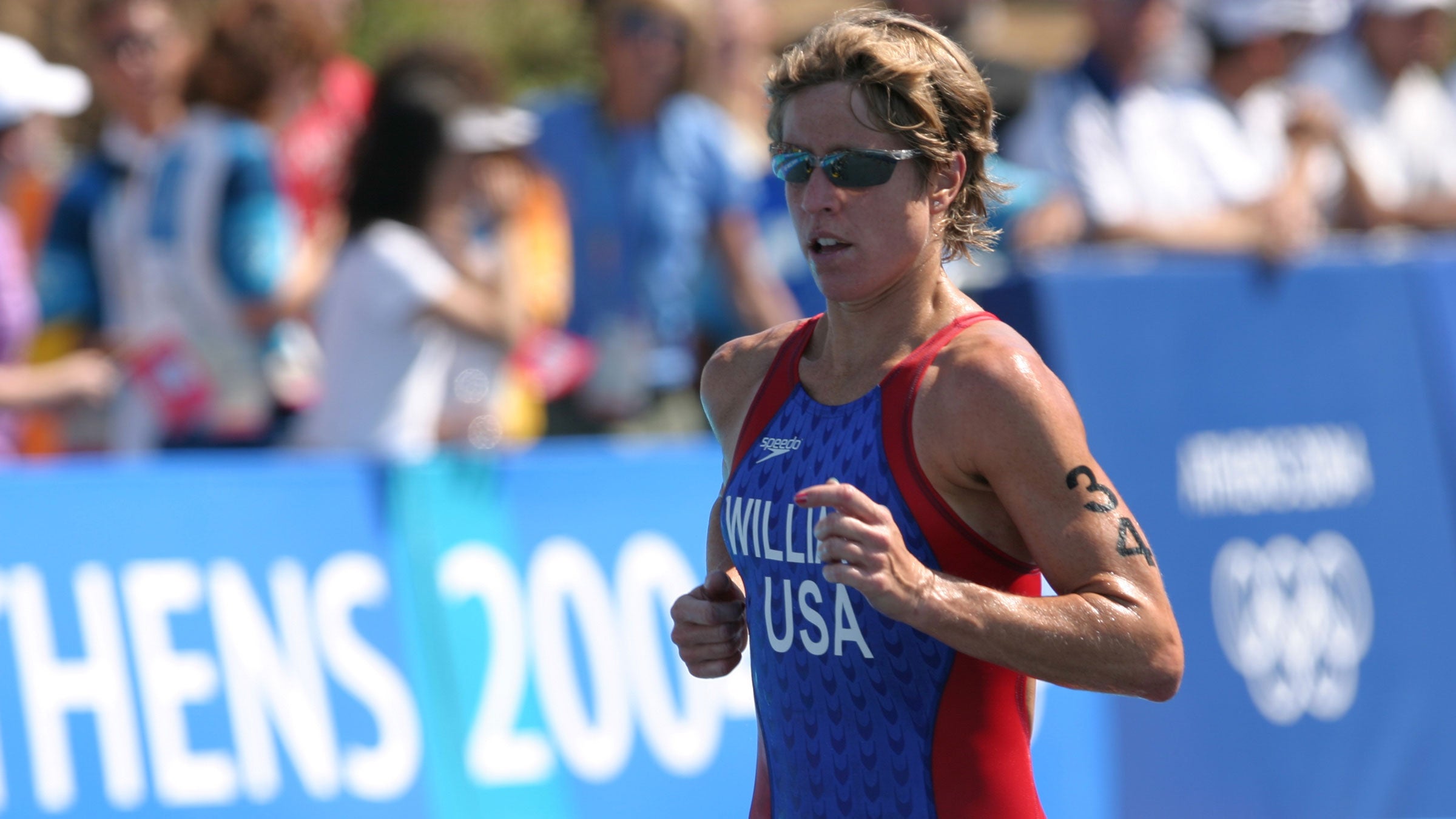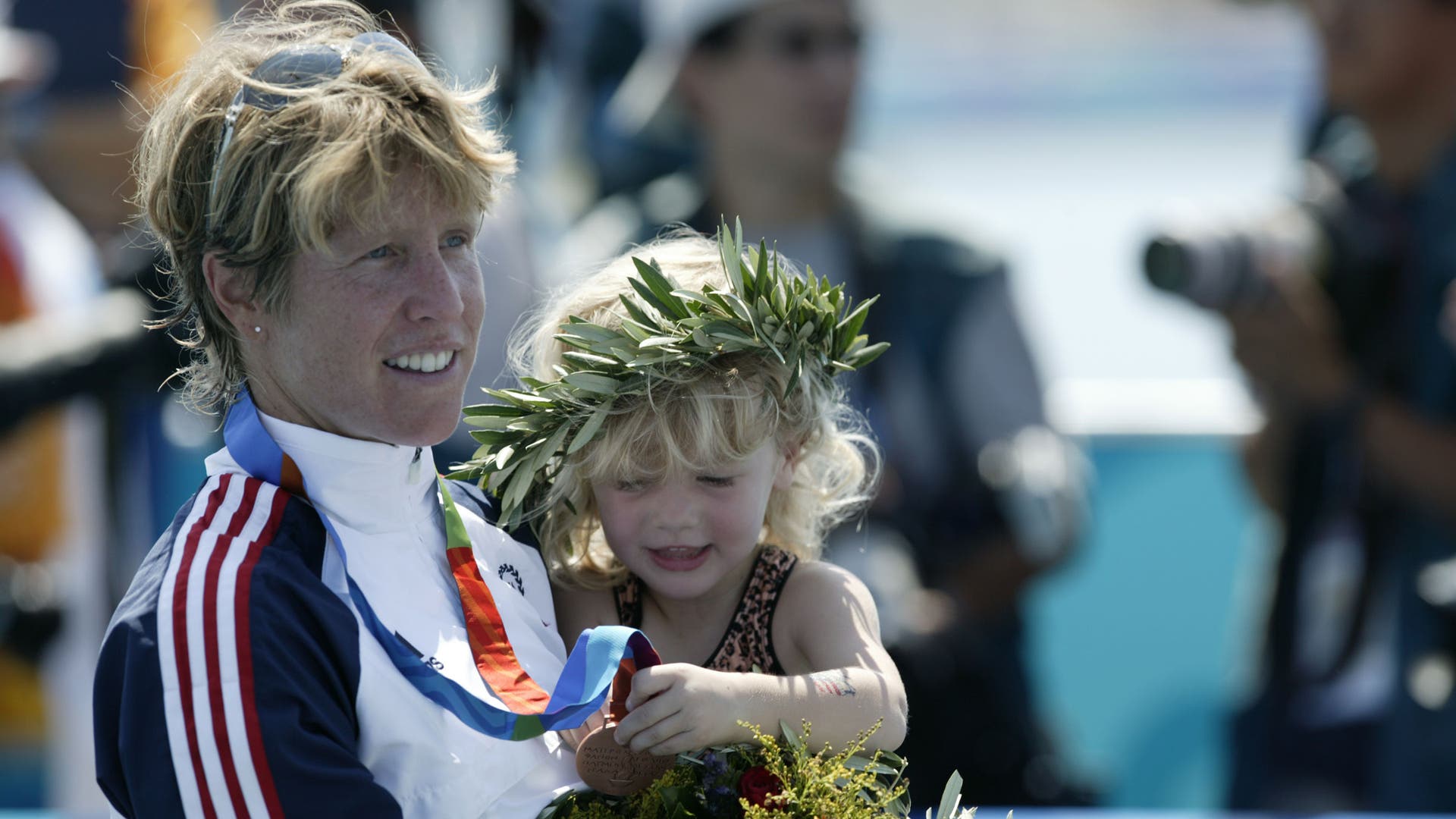Recalled: Susan Williams Wins USA's First Triathlon Olympic Medal

Susan Williams at the 2004 Athens Olympics. (Photo: Frank Wechsel/Triathlon.org)
With the racing world on pause as the planet continues to cope with the COVID-19 pandemic, Triathlete will dip back into the archives and revisit some of the biggest, most inspiring, and somewhat under-the-radar moments in triathlon. Today, we’re rewinding back to 2004, when a relatively unknown athlete named Susan Williams etched her name in the history books by becoming the first American, male or female, to win an Olympic medal for the U.S. in triathlon.
On paper, Susan Williams was not the obvious choice for securing the Team U.S.A.’s first Olympic medal in triathlon. After all, she was in Athens alongside fellow Americans Barb Lindquist and Sheila Taormina, both accomplished swimmers-turned-triathletes who’d been dominant in the build up to the games. Williams, a former aerospace engineer, had squeaked onto the Olympic squad with a third-place finish at the Trials in Bellingham, Washington in June, 2004, just days before her 35th birthday. She was a new mom, to boot, and had taken some time off after the 2001 birth of her daughter, Sydney–a narrative that was relatively novel at the time.
So how did a woman ranked 35th in the world catapult herself to the Olympic podium? It wasn’t like she came in underprepared. A couple years prior, she’d hired Siri Lindley, who, fresh off her own world championship, had whipped Williams into top shape, most notably by sharpening the edge on her run. And it was this weapon that proved particularly instrumental on August 25, 2004.
After exiting the swim in 9th place (and 25 seconds down from Lindquist, Taormina, and Australia’s Loretta Harrop), Williams, who, as a teen held the junior national record in the 200-meter butterfly, got to work. She swiftly bridged the gap to the chase pack behind Taormina and Harrop hammering off the front, who’d stretched their lead to two minutes over the rest of the field at one point. Working together, Lindquist and Williams were able to break from the peloton, regroup with Taormina, then dropped by Harrop, and entered the transition area in synchronous motion–a dazzling display of U.S. dominance in the sport.
But, the race was not over. Far from it. Despite charging out of T2 with significant leads over the chasers, the top women wilted on the run. Perhaps it was the heat, or the challenging three-lap course, or maybe they’d burned one too many matches on the bike. Whatever it was, the race to the podium soon became a race of attrition. First, Lindquist faded. Then Taormina. And Harrop’s once dominant lead shrunk to just seconds over the field. But Williams–her face stoic, her gait bouncy and assured–held strong. She barely flinched when Kate Allen, an Australian-born Austrian, charged by her in the final minutes en route to clinching the gold in dramatic fashion by sweeping past Harrop in the homestretch. Keeping her shoulders square and her pace solid, Williams strode to the finish line, pumping her chiseled arms in the air in celebration of her milestone moment.
The finish was a surprise to just about everyone who followed the sport–even to Williams herself. (“Had I placed fourth at the Olympics,” she told Sports Illustrated in at the time, “I would’ve been thrilled.”) At the medal ceremony in Athens, she hoisted Sydney on her hip to ascend the third step of the podium. There she was: A mom, a shiny bronze medal, and her towheaded daughter in a cheetah print bathing suit. It was an unforgettable image that made Williams an instant darling of the Olympic games.

Williams would not return to the Olympics. She retired from pro racing in 2009, had two more kids, started a coaching company in Colorado, and dabbled in age-group racing. Still, her performance in Athens forever inked her name in the annals of the sport. And, at a time when it was atypical to reach the pinnacle of an athletic career after pregnancy, Williams undoubtedly inspired women triathletes around the world–and set the stage for many who would go on to follow similar paths.